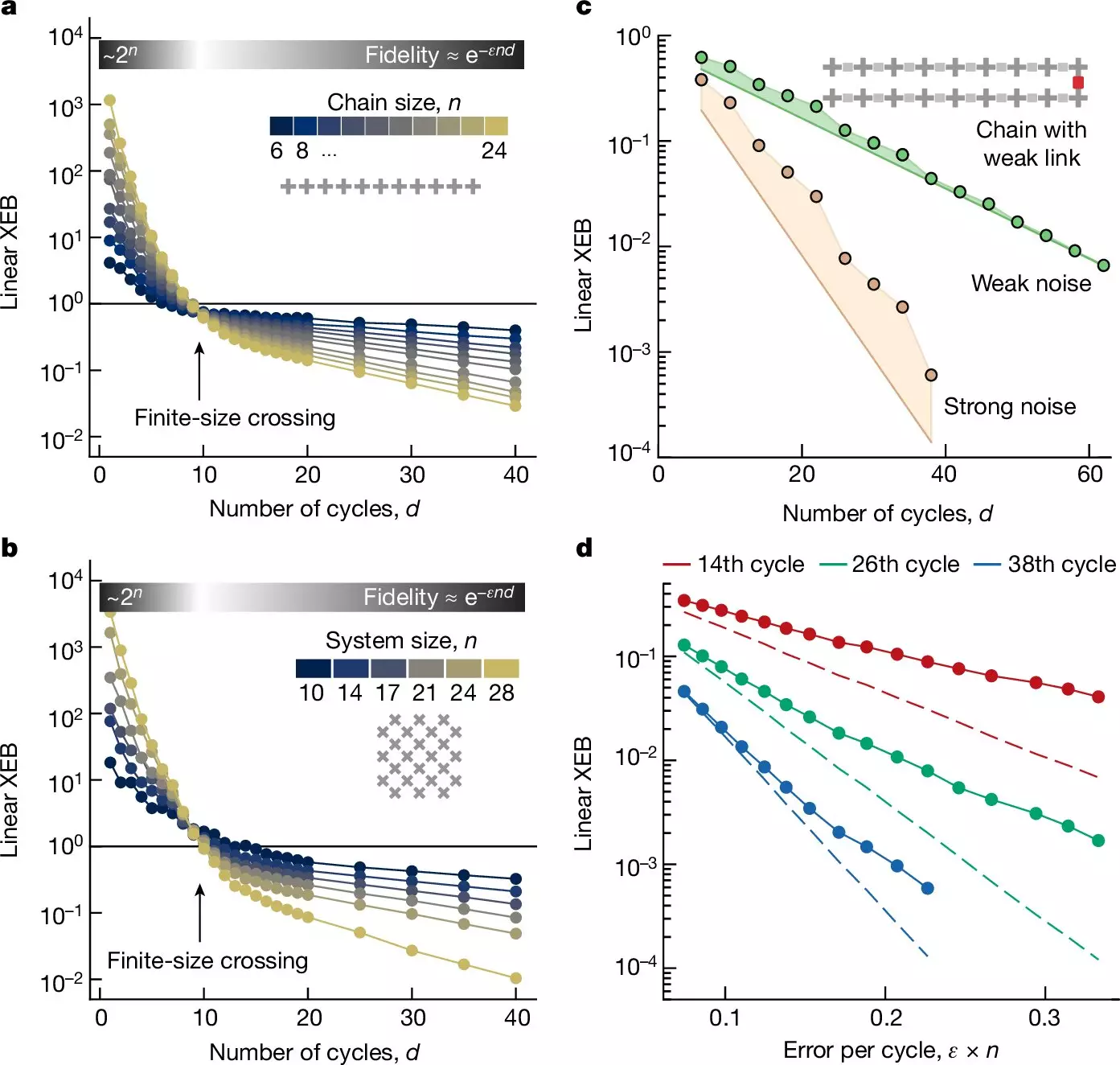In a groundbreaking study, researchers at Google’s Quantum AI lab have made significant strides in quantum computing, specifically with their Sycamore quantum processor. Their recent findings, published in the esteemed journal Nature, reveal that minimizing environmental noise enhances the quantum chip’s performance to the extent that it can outperform classical computers in random circuit sampling (RCS). This achievement underscores the ongoing evolution in quantum technology, which has captured the attention of scientists and technologists alike as they strive to unlock the true potential of quantum algorithms.
While computer scientists have been pursuing the development of practical quantum computers for decades, they have faced considerable obstacles. The initial expectations of quantum computers performing complex algorithms that would take classical supercomputers eons to solve remain largely unfulfilled. Nonetheless, incremental advancements continue to propel the field forward, facilitating a deeper understanding of the interplay between quantum mechanics and computational systems.
One of the principal barriers faced by quantum computing researchers is the insidious problem of noise. Background noise—stemming from various sources such as temperature fluctuations, magnetic distortions, or cosmic radiation—can lead to significant errors in quantum calculations. This imperfection in quantum operations is a topic of extensive research, prompting scientists to explore error correction strategies and preventive measures.
The RCS algorithm, which generates random sequences, serves as an effective benchmark to compare the efficacy of quantum and classical computing systems. The difficulty lies in the fact that, although RCS doesn’t perform meaningful computations, it challenges the processing capabilities of both types of computers through sheer randomness. The Earth-shattering realization that even marginal improvements in error rates can influence performance significantly is critical for the quantum community. For instance, Google’s team noted that striving to enhance their processor’s error rate from 99.4% to 99.7% yielded remarkable enhancements in its computational abilities.
The innovative approach undertaken by Google’s researchers involved operating their Sycamore chip within a chamber at near absolute zero temperatures. This method effectively insulated the chip from environmental noise, paving the way for improved performance. During their experiments, the research team noticed that even slight adjustments could lead to substantial shifts in quantum processing capabilities. This finding suggests that the relentless pursuit of minimizing noise may hold the key to unlocking future advancements in quantum technologies.
The study’s results not only confirmed the idea that reducing environmental disturbances can enhance quantum compute performance but also hinted at the concept of “quantum advantage” emerging from their work with RCS. This term implies that the quantum chip can perform tasks that classical systems cannot match, marking a crucial milestone on the road to realizing practical quantum computing.
As researchers like those at Google continue to push the boundaries of what is possible within the realm of quantum computing, the aspirations for useful applications of this technology grow stronger. With ongoing efforts to mitigate noise and enhance processing efficiency, the quantum computing community may be inching closer to creating tools that truly revolutionize computational capabilities. The recent breakthroughs reinforce the notion that, despite the challenges, a practical quantum future is not only a dream, but an attainable reality on the horizon.


Leave a Reply